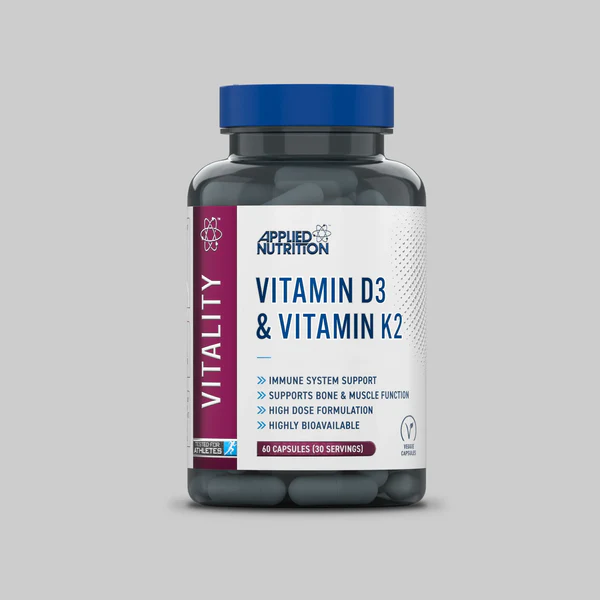Vitamin D
What Is Vitamin D?
A fat-soluble vitamin commonly included in our diets, vitamin D is one of the best-known fat-soluble vitamins. When exposed to light, our skin produces this unique nutrient. Food sources rich in vitamin D include mackerel, salmon, sardines eggs mushrooms egg yolks cod liver oil orange juice milk cereal yoghurt which are fortified as well as food supplements; additional sources can also provide access to this essential nutrient.
Studies have illustrated vitamin D’s importance in helping prevent heart disease, type 2 diabetes, osteoporosis, influenza and depression. Vitamin D plays an essential part in supporting muscle, dental and bone health as well as depression prevention.
Vitamin D plays a key role in bone health by aiding with calcium and phosphorus absorption from food sources, helping the body use them optimally, helping prevent fractures that result from simple falls, muscle weariness and bone loss. Teenagers, young people and middle aged individuals tend to be especially at risk from vitamin D deficiency; its prevalence being especially prevalent among them. When vitamin sunlight levels remain insufficient over a sustained period, bone fragility becomes much more likely and fractures more frequent resulting from fragility.
Vitamin D’s Health Benefits and Uses
Vitamin D serves many important roles within our bodies.
- Bone Health: For healthy bones, ensure your vitamin D and calcium levels are adequate. Too little vitamin D can make bones more fragile and lead to fractures or injuries in the form of fractured or otherwise damaged brittleness; to absorb calcium and phosphorus effectively in your body it’s imperative that vitamin D plays its part.
- Immune System: Vitamin D can play an integral part of our immune systems in many different ways, from acting as an effective antibacterial measure and blocking inflammation-related cells from proliferating, all the way through to providing protection from influenza and flu viruses. According to research studies, vitamin D offers protection from influenza/flu virus attacks.
- Enhance Cognitive Function: Vitamin D plays an essential part in maintaining mood. Lack of Vitamin D has been linked with depressive symptoms as well as neurological diseases that become prevalent with age – such as Alzheimer’s.
Medical studies indicate a lower risk for metabolic conditions with adequate vitamin D levels: studies suggest diabetes type 2 and overweight are more prevalent among individuals who do not consume sufficient amounts. With adequate levels of Vitamin D available, more glucose will be metabolised efficiently while body fat ratio can also decrease with help of reduced body fat ratio and better glucose utilisation.
Vitamin D Types :
Vitamin D comes in two varieties.
- Ergocalciferol (Vitamin D2): This variety can be obtained through various sources including plants as well as fortified food items or nutritional supplements.
- Cholecalciferol (Vitamin D3) can be found naturally in animal products like liver, oily fish and egg yolks as well as in diet supplements.
Which Vitamin D product will give me optimal results?
Vitamin D supplements provide another reliable method to maintain adequate vitamin D levels and avoid deficiencies. They come in capsules, tablets and syrup forms as well as sprays or chewable gummi gummies – so there’s sure to be something suitable to meet any need!
- Vitamin D supplements should have no fillers or other chemical filler ingredients – the main one being vitamin D itself! As vitamin D2 comes from plants it should be the recommended choice if you are vegetarian/vegan; otherwise vitamin D3 could be more potent since it provides more power per pill than its plant-derived predecessors.
- Vitamin D supplements come in different strengths; there are tablets which contain 2000, 5000 or even 60,000 international units (IU) per tablet containing Vitamin D; it’s important that when choosing between the various kinds it be carefully considered which amount your body requires.
- As is always recommended when purchasing supplements online from My Supplement Bay or another reputable vendor, ensuring its authenticity before proceeding to purchase.
How Can Vitamin D Supplements be Taken Orally, with Water?
Oral vitamin D supplements should be taken orally along with water and calcium-rich meals such as curd, milk or paneer for maximum absorption. For the best results it’s also advised to combine taking Vitamin D supplements with foods rich in calcium such as curd or milk before taking vitamin D pills orally.
Adults and children may both benefit more from vitamin D gummies or syrups due to their easier consumption.
Where Can You Purchase Vitamin D Supplements in India?
Mysupplementbay provides cost-effective ways for ordering supplements at mysupplementbay’s best rates and deals, guaranteeing authentic items at unbeatably affordable costs – this makes Mysupplementbay one of the premier solutions when searching for vitamin D tablets in India!
Do you consider Vitamin D safe to take?
Vitamin D supplements tend to be safe. However, it’s important to keep in mind that Vitamin D is an fat-soluble vitamin and excessive doses could pose potential harm.
- As Vitamin D builds up within your body over time, be mindful of how much you take when taking vitamin D supplements. Dosage should always be noted so as to avoid an overload.
- Consult a medical provider if you need guidance in choosing your dosage prescriptions.
Frequently Asked Questions (FAQs):
If you take supplements of vitamin D, be mindful not to exceed the suggested quantity as this could result in adverse side effects due to overconsumption. These could include kidney and skin issues.
Diarrhea and Appetite Loss, Calcium Calcification in Bones, Metallic tastes, nausea, headache, dry mouth, constipation and vomitting as a symptom of hardening of blood vessels that affect heart, lung and kidney tissue. Hardening also increases chances of cardiovascular diseases affecting these vital organs such as high blood pressure.
Below are a few symptoms of Vitamin D deficiency: Muscle pain, hair falls, depression and fatigue, joint and back pain, damaged wound healing time-frames as possible signs; muscle pain (with infections); infections (if long term deficiency is suspected); gain in weight in cases such as Rickets). Osteoporosis, commonly a condition affecting adult females with chronic deficiencies.
Here are a few causes of vitamin D deficiency:
Pollution levels remain extremely elevated.
Breastfeeding. Additional time in the indoor environment and overuse of sun lotion.
People with darker skin who possess high melanin levels decrease the skin’s capacity to produce vitamin D from sunlight, thus decreasing its capacity to make this essential vitamin.
Vitamin D-rich food intake was inadequate.
Spend as much time indoors as you can; the sooner or later it will benefit.
Aging.
With age comes decreased capacity to absorb fats within the body and absorb them for energy use.
Normal Vitamin D concentration levels: between 30- 50 mg/ml.
Vitamin D deficiency should not exceed 20ng/ml.
People prone to deficiency: 20-30 ng/ml is ideal.
Vitamin D Toxicity: Greater than 100ng/ml.
Studies conducted have demonstrated that exposure to sunlight between 11AM and 2PM can significantly enhance vitamin D production.
Vitamin D requirements for Indians according to ICMR:
Infants: 10 mg or 400 IU daily should be administered.
Children: 15 mg daily or 600 IU.
Adults: 15 mg or 600 IU daily is suggested.
Vitamin D needs vary by brand; for instance, 1,000 International Units per day is sufficient while 60,000 is suggested weekly for optimal health benefits. Before beginning taking any vitamin D supplement it is advised that one consult their healthcare provider first.


